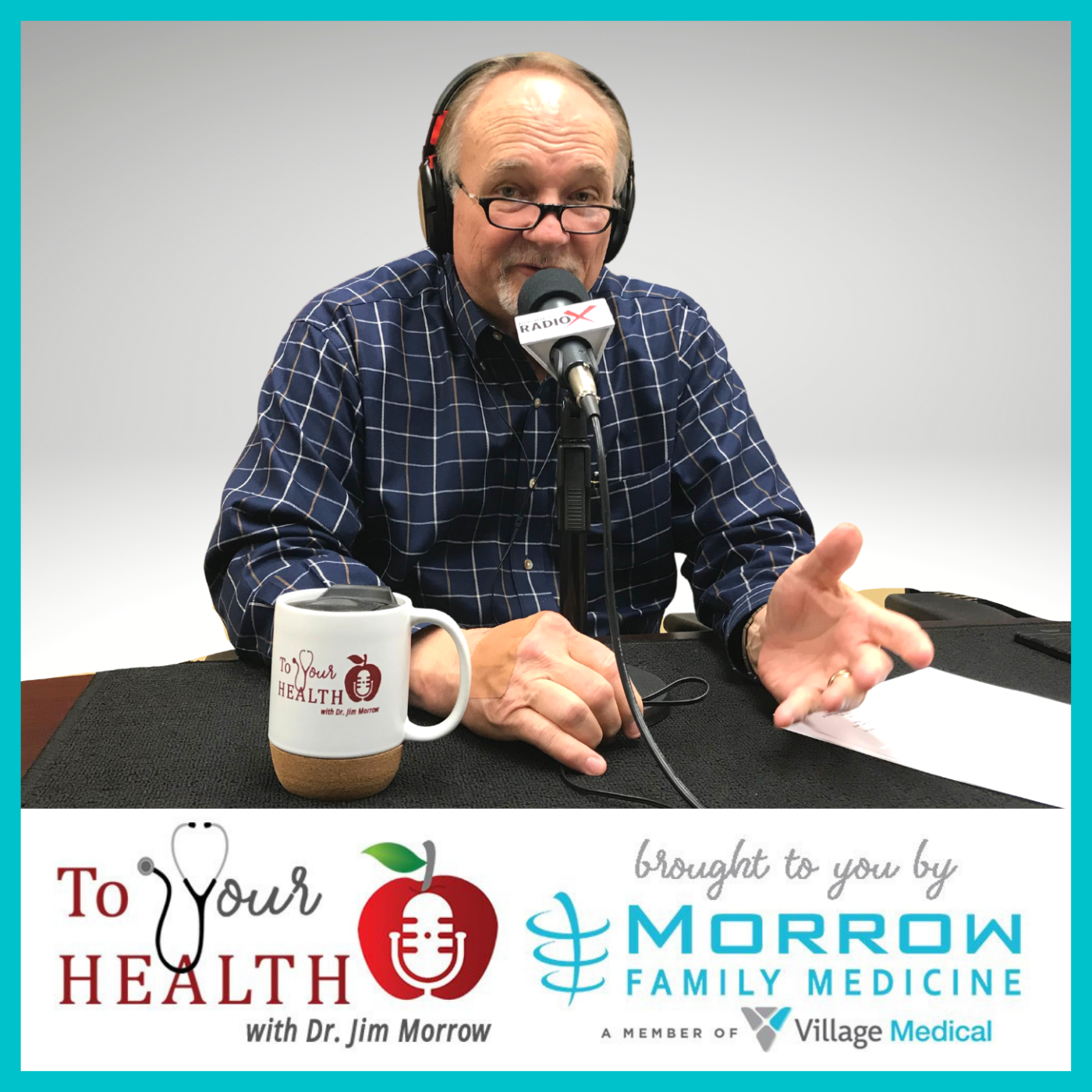
Teens and Social Media (Episode 70, To Your Health with Dr. Jim Morrow)
On this episode of To Your Health, Dr. Jim Morrow addressed some of the issues around teens using social media. While there are benefits to social media, such as entertainment, community, and self-expression, there are also risks like bullying, undue peer pressure, and depression. To protect teens, Dr. Morrow offered several suggestions, including limiting screen time and monitoring your child’s accounts, and he discussed when to involve a health care provider. To Your Health is brought to you by Morrow Family Medicine, a Member of Village Medical, which brings the care back to healthcare.
About Morrow Family Medicine, A Member of Village Medical
Morrow Family Medicine, a Member of Village Medical, is an award-winning, state-of-the-art family practice with offices in Cumming and Milton, Georgia. The practice combines healthcare information technology with old-fashioned care to provide the type of care that many are in search of today. Two physicians, three physician assistants and two nurse practitioners are supported by a knowledgeable and friendly staff to make your visit to Morrow Family Medicine, A Member of Village Medical one that will remind you of the way healthcare should be. At Morrow Family Medicine, a Member of Village Medical, we like to say we are “bringing the care back to healthcare!” The practice has been named the “Best of Forsyth” in Family Medicine in all five years of the award, is a three-time consecutive winner of the “Best of North Atlanta” by readers of Appen Media, and the 2019 winner of “Best of Life” in North Fulton County.
Village Medical offers a comprehensive suite of primary care services including preventative care, treatment for illness and injury, and management of chronic conditions such as diabetes, congestive heart failure, chronic obstructive pulmonary disease (COPD) and kidney disease. Atlanta-area patients can learn more about the practice here.
Dr. Jim Morrow, Morrow Family Medicine, and Host of To Your Health with Dr. Jim Morrow
 Dr. Jim Morrow is the founder and CEO of Morrow Family Medicine. He has been a trailblazer and evangelist in healthcare information technology, was named Physician IT Leader of the Year by HIMSS, a HIMSS Davies Award Winner, the Cumming-Forsyth Chamber of Commerce Steve Bloom Award Winner as Entrepreneur of the Year and he received a Phoenix Award as Community Leader of the Year from the Metro Atlanta Chamber of Commerce. He is married to Peggie Morrow and together they founded the Forsyth BYOT Benefit, a charity in Forsyth County to support students in need of technology and devices. They have two Goldendoodles, a gaggle of grandchildren and enjoy life on and around Lake Lanier.
Dr. Jim Morrow is the founder and CEO of Morrow Family Medicine. He has been a trailblazer and evangelist in healthcare information technology, was named Physician IT Leader of the Year by HIMSS, a HIMSS Davies Award Winner, the Cumming-Forsyth Chamber of Commerce Steve Bloom Award Winner as Entrepreneur of the Year and he received a Phoenix Award as Community Leader of the Year from the Metro Atlanta Chamber of Commerce. He is married to Peggie Morrow and together they founded the Forsyth BYOT Benefit, a charity in Forsyth County to support students in need of technology and devices. They have two Goldendoodles, a gaggle of grandchildren and enjoy life on and around Lake Lanier.
Facebook: https://www.facebook.com/MorrowFamMed/
LinkedIn: https://www.linkedin.com/company/7788088/admin/
Twitter: https://twitter.com/toyourhealthMD
The complete show archive of To Your Health with Dr. Jim Morrow addresses a wide range of health and wellness topics and can be found at www.toyourhealthradio.com.
Dr. Morrow’s Show Notes
What’s the impact?
- Social media is a big part of many teens’ lives.
- A 2018 Pew Research Center survey of nearly 750 13- to 17-year-olds found that 45% are online almost constantly
- and 97% use a social media platform,
- such as YouTube, Facebook, Instagram or Snapchat.
- and 97% use a social media platform,
- A 2018 Pew Research Center survey of nearly 750 13- to 17-year-olds found that 45% are online almost constantly
But what impact does social media use have on teens?
Social media benefits
- Social media allows teens to create online identities,
- communicate with others
- and build social networks.
- These networks can provide teens with valuable support,
- especially helping those who experience exclusion or have disabilities or chronic illnesses.
- Teens also use social media for entertainment and self-expression.
- And the platforms can expose teens to current events,
- allow them to interact across geographic barriers
- and teach them about a variety of subjects,
- including healthy behaviors.
- Social media that’s humorous or distracting or provides a meaningful connection to peers and a wide social network might even help teens avoid depression.
- and teach them about a variety of subjects,
- allow them to interact across geographic barriers
- And the platforms can expose teens to current events,
- These networks can provide teens with valuable support,
Social media harms
- However, social media use can also negatively affect teens,
- distracting them,
- disrupting their sleep,
- and exposing them
- to bullying,
- rumor spreading,
- unrealistic views of other people’s lives
- and peer pressure.
- The risks might be related to how much social media teens use.
- A 2019 study of more than 6,500 12- to 15-year-olds in the U.S.
- found that those who spent more than three hours a day using social media might be at heightened risk for mental health problems.
- Another 2019 study of more than 12,000 13- to 16-year-olds in England
- found that using social media more than three times a day predicted poor mental health and well-being in teens.
- Other studies also have observed links between high levels of social media use and depression or anxiety symptoms.
- A 2016 study of more than 450 teens found that
- greater social media use, nighttime social media use and emotional investment in social media —
- such as feeling upset when prevented from logging on —
- A 2019 study of more than 6,500 12- to 15-year-olds in the U.S.
- were each linked with worse sleep quality and higher levels of anxiety and depression.
- How teens use social media also might determine its impact.
- A 2015 study found that
- social comparison
- and feedback seeking
- by teens using social media and cellphones was linked with depressive symptoms.
- In addition, a 2013 study found that older adolescents who used social media passively,
- such as by just viewing others’ photos,
- reported declines in life satisfaction.
- Those who used social media to interact with others or post their own content didn’t experience these declines.
- Another study on the impact of social media
- on undergraduate college students
- showed that the longer they used Facebook,
- the stronger was their belief that others were happier than they were.
- But the more time the students spent going out with their friends, the less they felt this way.
- Because of teens’ impulsive natures,
- experts suggest that teens who post content on social media
- are at risk of sharing intimate photos or highly personal stories.
- This can result in teens
- being bullied,
- harassed or
- even blackmailed.
- Teens often create posts without considering these consequences or privacy concerns.
- experts suggest that teens who post content on social media
- showed that the longer they used Facebook,
- on undergraduate college students
- such as by just viewing others’ photos,
- A 2015 study found that
Protecting your teen
- There are steps you can take to encourage responsible use of social media and limit some of its negative effects.
- Consider these tips:
- Set reasonable limits.
- Talk to your teen about how to avoid letting social media interfere
- with his or her activities,
- sleep,
- meals
- or homework.
- Encourage a bedtime routine that avoids electronic media use, and keep cellphones and tablets out of teens’ bedrooms.
- Set an example by following these rules yourself.
- Monitor your teen’s accounts.
- Let your teen know that you’ll be regularly checking his or her social media accounts.
- You might aim to do so once a week or more.
- Make sure you follow through.
- Explain what’s not OK.
- Discourage your teen
- from gossiping,
- spreading rumors,
- bullying
- or damaging someone’s reputation —
- online or otherwise.
- Talk to your teen about what is appropriate and safe to share on social media.
- Encourage face-to-face contact with friends.
- This is particularly important for teens who are vulnerable to social anxiety disorder.
- Talk about social media.
- Talk about your own social media habits.
- Ask your teen how he or she is using social media
- and how it makes him or her feel.
- Remind your teen that social media is full of unrealistic images.
- Ask your teen how he or she is using social media
- Talk about your own social media habits.
- Discourage your teen
- Let your teen know that you’ll be regularly checking his or her social media accounts.
- Talk to your teen about how to avoid letting social media interfere
If you think your teen is experiencing signs or symptoms of anxiety or depression related to social media use, talk to your child’s health care provider.















